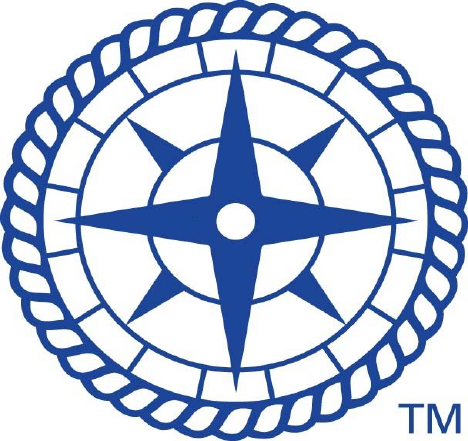
Student-Led Conference
Faculty Handbook
By Megan McMahon, Teacher and Crew Leader
Washington Heights Expeditionary Learning School
Minds in Motion
Brett Kimmel, Principal

2
Table of Contents
Description of Student-Led Conferences
3
Objectives of SLCs
3
SLC Learning Targets
4
Role of Student
5
Role of Subject Teacher
6
Role of Crew Leader
7
Role of the Parent
9
Role of School
10
Supporting Documents
Student Self –Evaluation Template
11
Student-Led Conference Scheduling Template for Teachers
12
Student-Led Conference Scheduling Template to Post
13
Student-Led Conference Assessment Template
14
Crew Advisor Preparation Checklist
15
Conference Concerns/Comments For Subject Teachers
16
Concerns For Students Earning Less Than a 75
17
Student Preparation Checklist for Student-Led Conferences
19
Sample Student Agenda
20
Sample Student-Led Conferences Student Script
21
Achievement Support Plan
24
3
Description of Student-Led Conferences (SLCs)
Washington Heights Expeditionary Learning School considers the relationship between students’ families and
the school to be of paramount importance. At three times during the school year, the school invites students and
their families to attend formal conferences during which report cards are given to families. At WHEELS,
Student-Led Conferences replace the traditional parent/teacher conference. SLCs are attended by the student,
parent/guardian, crew advisor, and other adults the student would like present. The crew leader facilitates the
meeting, but the student is in charge.
During the conference, students explain their progress toward and mastery of both academic (content/skill) and
character (habits of work and learning) learning targets. Students justify their progress by leading their families
through a portfolio of assignments culled from academic classes.
At WHEELS, we base our Habits of Work and Learning (HOWL) learning targets upon our WHEELS Ways to
Be: prepared, prompt, present, responsible, respectful, and open minded.
Students justify quarter grades in each class by referencing specific assignments that show their mastery of
learning targets. Students also complete self-evaluations of their performance in each class and share them with
their families. Students are held accountable for their progress when they explain areas of strength and areas in
need of improvement. The tone of the conference is positive with a focus on what can be done to ensure
success as opposed to what has been done poorly.
Objectives of Student-Led Conferences:
To increase student accountability and autonomy concerning academics and their habits of work and learning
(HOWLS).
To hone student verbal communication and critical thinking skills.
To emphasize WHEELS’ student centered philosophy.
To build open relationships with families concerning student progress at WHEELS.
To help students meet speaking standards.
To teach students how to persuade by substantiating claims with evidence.
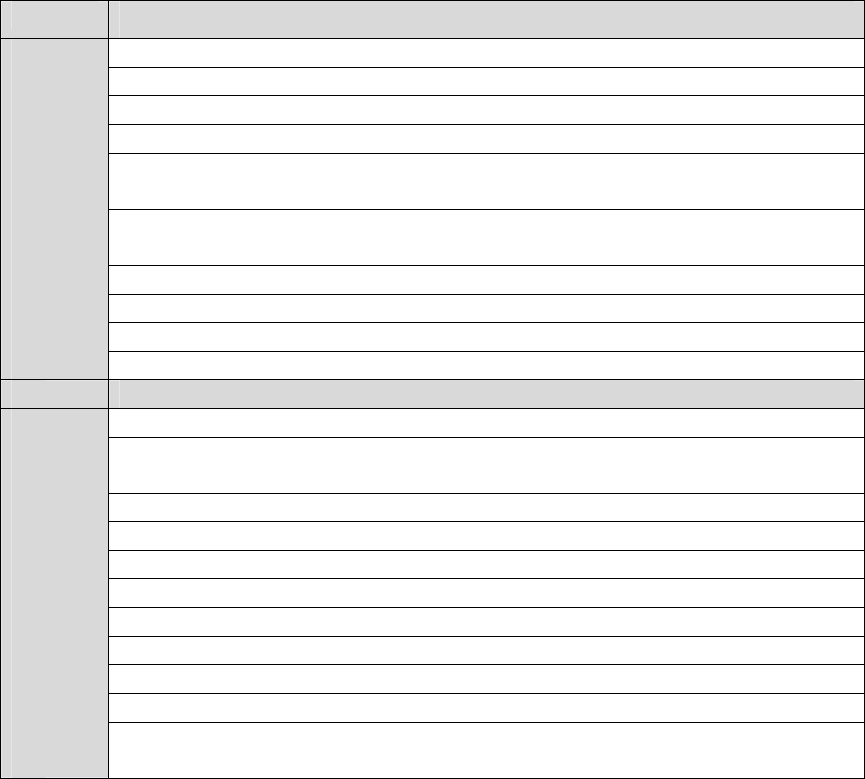
4
WHEELS Student-Led Conference Learning Targets
Learning Targets
I can make consistent eye contact when speaking.
I can speak clearly, audibly, and at an appropriate pace.
I can use an appropriate and respectful tone.
I can answer questions directly and honestly.
I can communicate ideas in an organized and coherent manner with
appropriate and precise vocabulary.
I can take responsibility for progress, explaining how and why I have
improved.
I can take ownership of my failures and mistakes.
I can reflect on my work habits.
I can create and share a plan for improvement or continued success.
HOWLS
(Habits of Work and
Learnin
g)
I can demonstrate my ability to follow the Ways to Be.
I can explain the learning targets I met in each of my academic subjects.
I can share examples and evidence from specific assignments in each of my
academic subjects.
I can use notes and outlines to help me present.
I can include details and examples relative to the audience.
I can conclude my presentation by reviewing the main points.
I can synthesize and paraphrase information.
I can make connections between sources of information.
I can persuade my audience by substantiating claims with evidence.
I can use language and grammar appropriate for purpose and audience.
I can use grammatically correct sentences when speaking.
Content/Skills
I can use facial expressions and gestures that help in communicating my
point.
5
Role of the Student
The student is the main player of the student led conference. Teachers and crew advisors guide the students
through the conference process and help the students prepare, but the responsibility of conveying information to
parents and families rests on the students.
Students continually self-assess their progress based on learning targets.
Each student keeps graded assignments in the appropriate binder or the student work folder. Students do not
throw away work.
Two weeks before conferences students cull two to three pieces of work from each of their academic working
folders that demonstrates their ability to meet learning targets. Students put work in a single crew folder that
they take from class to class.
Students complete self-evaluation checklists for each academic class. They reflect on their progress and the
areas in which they need to improve. Students are prepared to share goals and strategies to obtain these goals
with the important adults in their lives.
They practice substantiating their grades with evidence from various assignments and their mastery of learning
targets by taking part in mock conferences during crew and subject classes.
Students write formal invitations to their parents to invite them to SLCs.
Students make sure that their parents fill out surveys and bring them to their crew advisors.
Students write formal thank-you notes to their parents post SLCs.
6
Role of the Subject Teacher
The subject teacher is responsible for keeping the student informed about his or her progress according to
learning targets. The teacher is also responsible for helping students select appropriate work to bring to the
conference and for providing class time for this purpose.
Each teacher has a list of students and corresponding crew advisors. Teachers share significant academic or
behavioral concerns with the crew advisor immediately, not at the end of the quarter. Crew advisors are alerted
to any event in which the parent is contacted. Crew advisors are invited to sit in on parent meetings.
Each subject teacher creates a file system of student work. All assignments are placed in these folders.
Students are taught to keep assignments available, either in their binders or in their working folders.
Each subject teacher creates a list of learning targets for each unit covered during the marking period. As a
general practice, the teacher explains the connection between assignments and learning targets. Teacher
assessment is clearly aligned with student mastery of learning targets. The teacher helps students learn to
explain academic progress in terms of learning target mastery. Grading is transparent and students know how
they are doing in a specific class at all times so the final grade is never a surprise.
Two weeks before conferences classroom teachers provide students with opportunities to cull work that
demonstrate mastery of learning targets. Teachers help students select two to three assignments that show the
learning process, preferably a multi-step project as opposed to a quick quiz. Improvement in skill mastery, like
a gradual improvement in multiplication facts, geography recollection, or specific grammar exercises, can be
shown in graph form to emphasize trends in progress, as opposed to performance on an assignment in isolation.
Teachers create a self-evaluation form for students to complete according to their success in the class. This
form includes the major learning targets and an area for goal setting. Students plan ways to meet goals in the
upcoming quarters.
Teachers model verbal exposition of the connection between assignments and learning target mastery.
Teachers provide class time for students to practice substantiating their grades with evidence from their
assignments. Teachers run mock conferences, specific to their subject area.
After the conferences are over, teachers make sure to contact any parent who is concerned about his/her child’s
progress in a timely manner. Crew advisors provide students with lists of students and their contact
information.
Teachers should be prepared to speak to the parents of any child who has failed the class or who has dropped
significantly in either conduct or academic performance.
7
Role of the Crew Advisor
In preparation for the conferences:
The bulk of SLC preparation happens in crew and much of the responsibility lies with the crew advisor. Crew
advisors ensure conference quality across the grade levels.
Crew advisors schedule conferences with the parents of crew members during the specific conference times.
Advisors clearly communicate the specific time for each conference with the students and their families.
Advisors create alternate arrangements if parents cannot attend the conference at the allotted time. The names
of any parent who is repeatedly unavailable should be given to the office.
Some families have multiple children attending WHEELS. Every effort should be made to provide parents with
consecutive conference times for their children.
Crew advisors help students organize assignments and prepare for conferences. Crew advisors review student
self-evaluation forms, help students set new goals, and guide students in the creation of action plans to meet
those goals.
Crew advisors help students develop agendas for the conference time and help them learn to manage time
wisely when speaking.
During crew time, advisors help students learn to speak thoroughly, but concisely about their work and general
progress. Crew leaders should pay particular attention to speaking skills such as eye contact, pacing, audibility,
body language, and use of visual aids.
Crew time is set aside to practice student-led conferences with peers.
Crew advisors review the Student-Led conference assessment rubric with students.
Right before the conferences begin:
Student-Led Conference schedules should be posted outside the classroom. Chairs should be provided for
families that arrive early.
The Crew Leader may want students to provide refreshments for their families and may want to have a table
set-up for younger children with paper, crayons, picture books, or games.
During the conference:
Crew Advisors must stick to the schedule. If a parent arrives late, the conference must be truncated out of
respect for the other families, but students may continue to share work in the hallway and report cards may be
given to parents.
Crew Advisors welcome each family, preferably using names, and thank them for coming. Crew Advisors remind
families that the student will do most of the talking and that it is best to save questions for the end.
8
Crew Advisors let the student speak. Crew Advisors may ask probing questions or direct the student to the agenda, but
they do not dominate the conversation. Crew Advisors help the student if the parent is talking too much, and try to
redirect the conversation if the parent begins to get upset.
Crew Advisors make sure all of the paper distribution and signing happens without taking away from the student’s
presentation.
Crew Advisors are prepared to answer questions about why the parents are meeting with them and not the subject
teachers and SLCs in general.
If a parent wants to meet with a teacher, then Crew Advisors record that information and tell the subject teacher the
next day.
Crew Advisors thank each family for coming and reaffirm availability for current or future concerns and give them a
survey to fill out at home.
After the Conferences:
Crew advisors collect surveys from students over the next few days.
Crew Advisors complete assessments for each crew-member, debriefs the conference and discusses goals the student
has made in crew the next day.
Crew Advisors inform subject teachers of any parental concerns.
Crew Advisors help students write thank-you notes to family members who attended the conferences.
9
Role of the Parent/Guardian
The parent/guardian is the second most essential attendee to the Student-Led Conference and should be briefed
about the format and objectives of the SLC so that the conference runs smoothly.
The parent must be willing to let the student speak, saving questions until the end.
The parent/guardian arrives on time.
The parent/guardian shares any lingering concerns with the crew advisors who will inform the subject teacher.
The parent/guardian helps the student meet his or her academic and behavioral goals by supporting their
progress at home.
10
Role of the School
The school prearranges Student-Led conference days, notifying teachers, students, and parents in a timely
manner.
The school shares the student-led conference format with the parents and is clear about the objectives of these
meetings.
The school encourages parent questions about our conference format.
The school sends multiple reminders home to families in both English and other appropriate languages.
The school provides teachers with report cards two days prior to the conferences so that students are not
surprised by grades and can practice their conferences with concrete information in front of them.
The school provides translators for teachers who do not speak students’ home language.
The school responds to parental concerns in a timely manner.
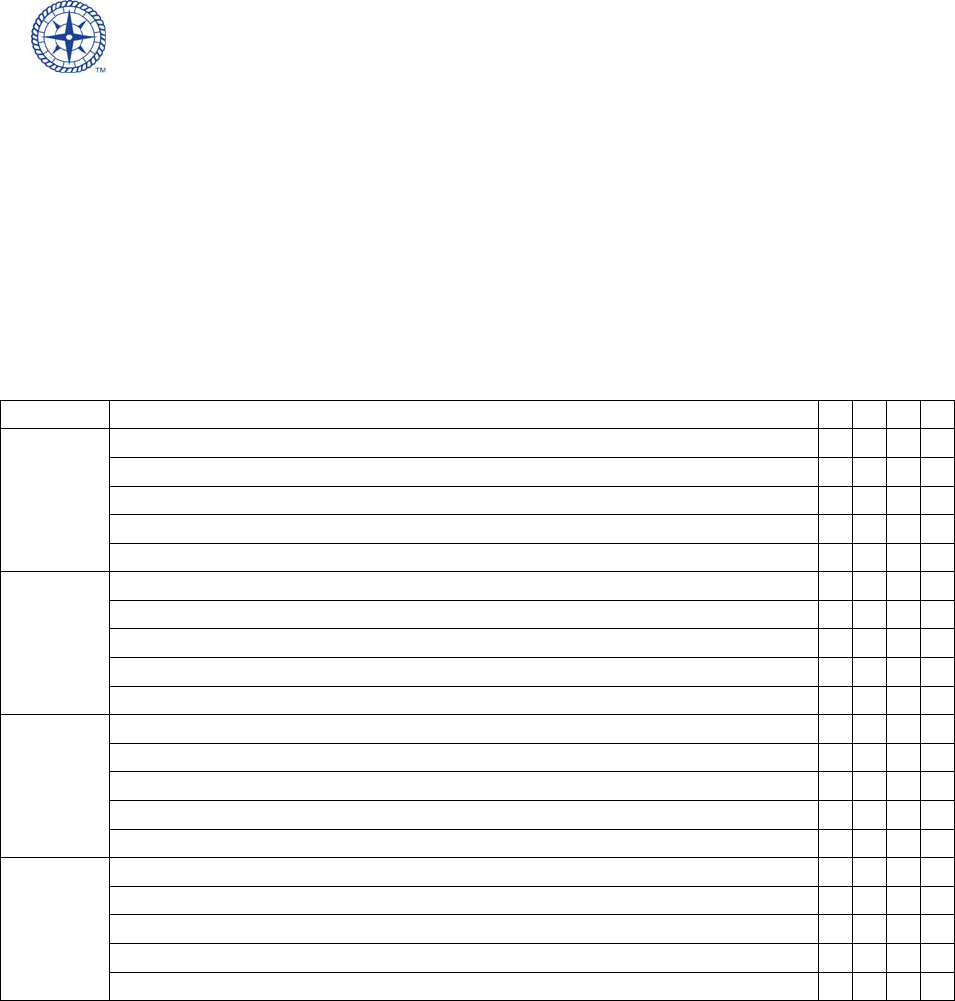
Washington Heights Expeditionary Learning School
Student Self-Evaluation Template
Teachers: Fill in the major assignments the children have completed this quarter. Write in the five major Learning Targets assessed
by these projects. Help the students self-evaluate by modeling evaluation of an important project. Students may find self-evaluation
easier if they have the assignments in front of them. You may want to allow students to select their own assignments to self-evaluate.
Name: Class: Date:
Class: Teacher:
Directions: Rate your mastery of each learning target. Consider your performance on projects that assess each
learning target.
Learning Targets 4 3 2 1
Assignment:
__________
Assignment:
__________
Assignment:
__________
Assignment:
__________
What are your goals for next quarter? What were some of your strengths in this quarter?
1. 1.
2. 2.
3. 3.
What changes can you make in your HOWLS to
help you achieve these goals?
What are some areas in which you can improve?
1.
1. 2
2.
11
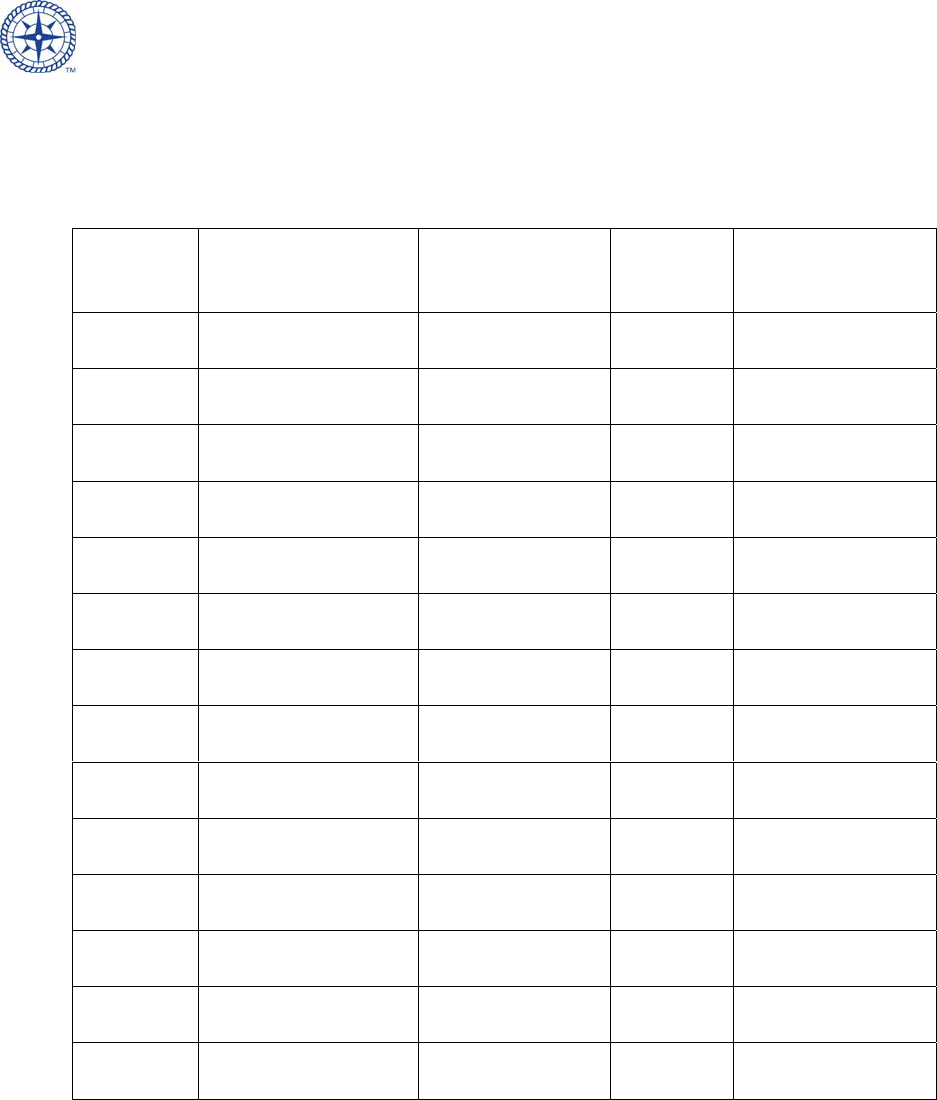
Washington Heights Expeditionary Learning School
Student-Led Conference Scheduling Template for Teachers
Time-Slot Student’s Name Name of Adult(s)
Attending
Conference
Telephone
#
Parent Signature
12
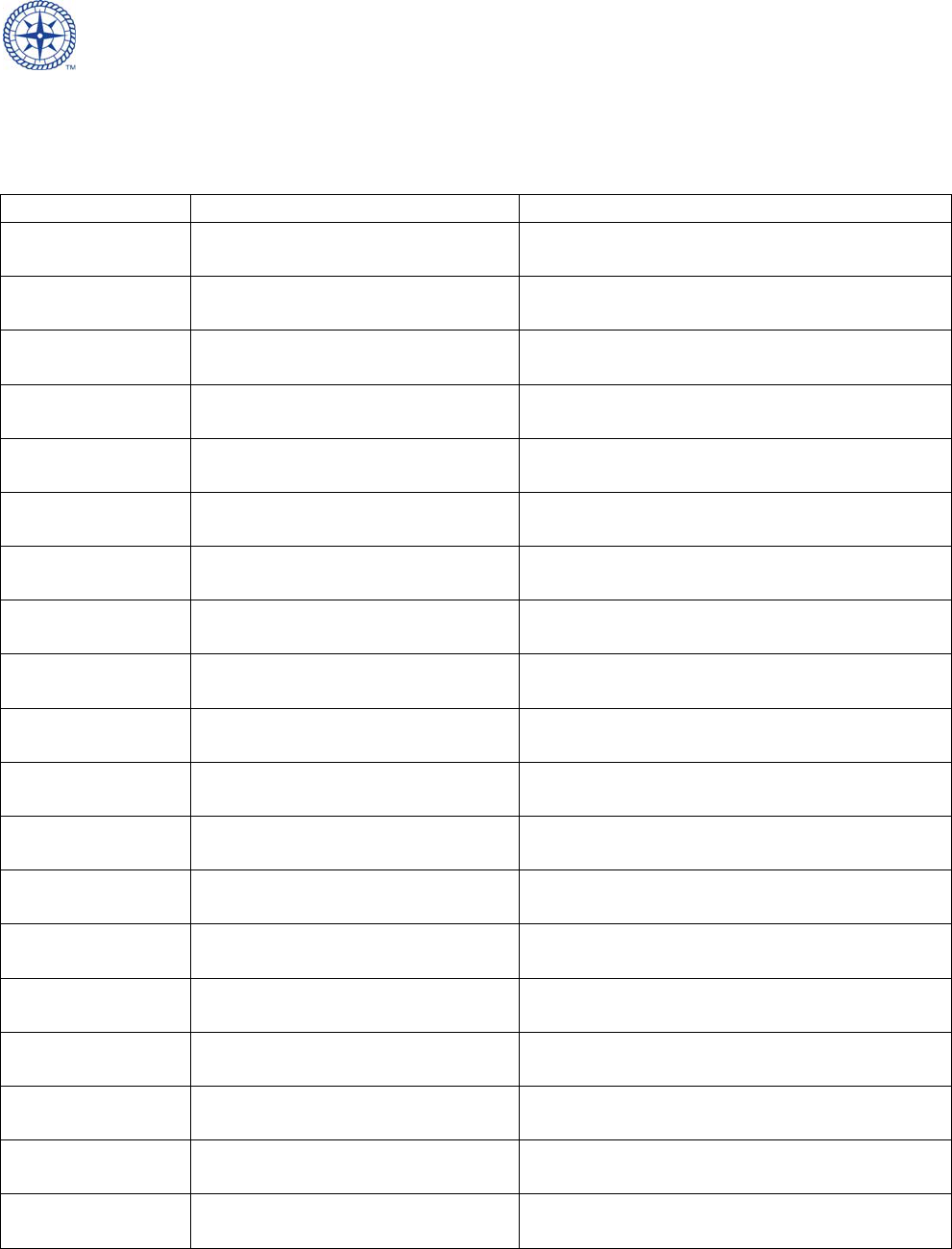
Washington Heights Expeditionary Learning School
Student-Led Conference Scheduling
(
to post outside the room)
Time-Slot Student’s Name Name of Adult(s) Attending Conference
13
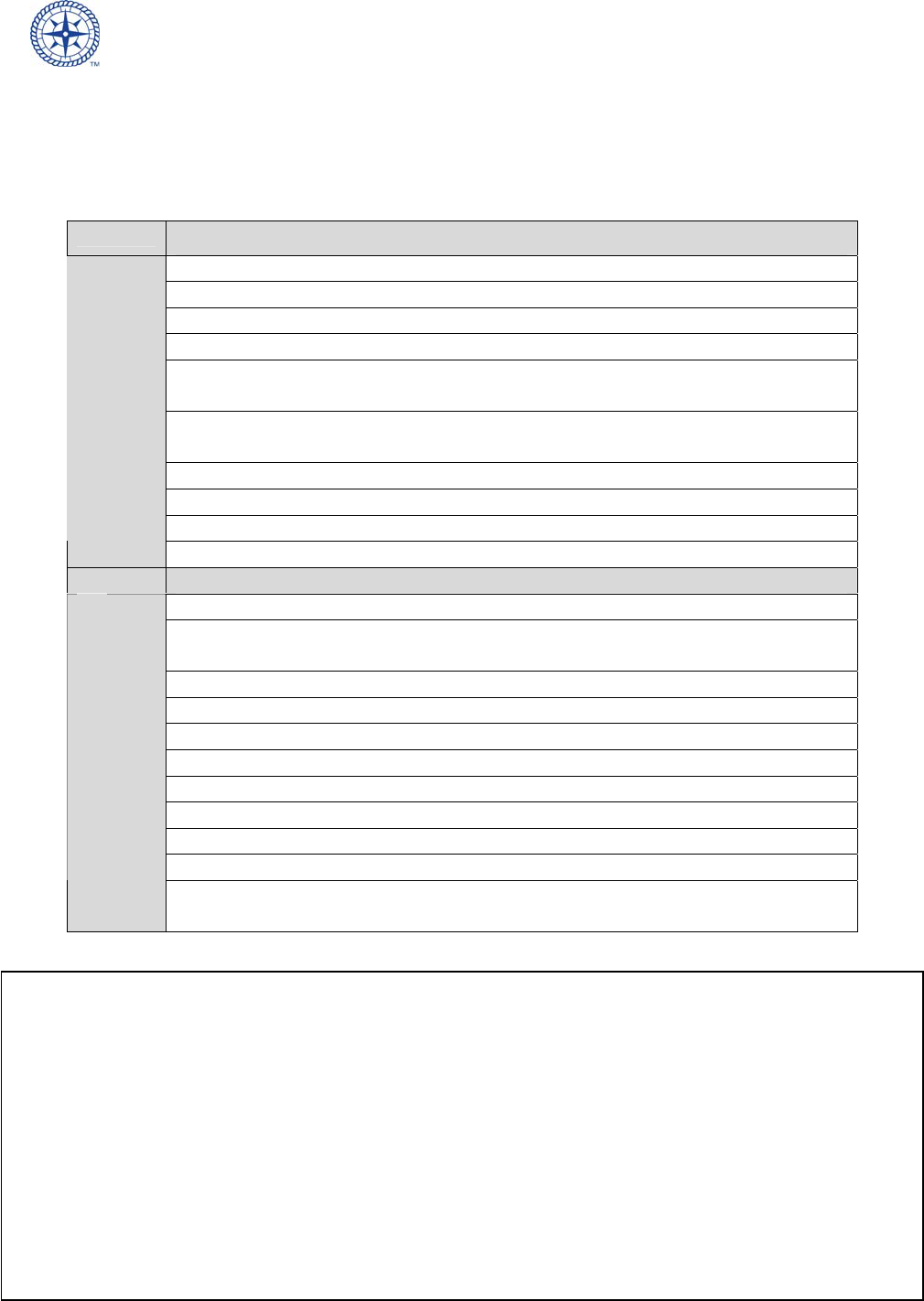
Washington Heights Expeditionary Learning School
Student-Led Conference Assessment Template
Name: Class: Date:
Crew Crew Advisor:
Learning Targets
I can make consistent eye contact when speaking.
I can speak clearly, audibly, and at an appropriate pace.
I can use an appropriate and respectful tone.
I can answer questions directly and honestly.
I can communicate ideas in an organized and coherent manner with
appropriate and precise vocabulary.
I can take responsibility for progress, explaining how and why I have
improved.
I can take ownership of my failures and mistakes.
I can reflect on my work habits.
I can create and share a plan for improvement or continued success.
HOWLS
(Habits of Work and
Learnin
g)
I can demonstrate my ability to follow the Ways to Be.
I can explain the learning targets I met in each of my academic subjects.
I can share examples and evidence from specific assignments in each of my
academic subjects.
I can use notes and outlines to help me present.
I can include details and examples relative to the audience.
I can conclude my presentation by reviewing the main points.
I can synthesize and paraphrase information.
I can make connections between sources of information.
I can persuade my audience by substantiating claims with evidence.
I can use language and grammar appropriate for purpose and audience.
I can use grammatically correct sentences when speaking.
Content/Skills
I can use facial expressions and gestures that help in communicating my
point.
Washington Heights Expeditionary Learning School
Comments: ___________________________________________________________________
____________________________________________________________________________
____________________________________________________________________________
____________________________________________________________________________
____________________________________________________________________________
14

Washington Heights Expeditionary Learning School
WHEELS Crew Advisor Preparation Checklist
Pre-Conference/Scheduling Logistics
F I have scheduled a conference for each student in my crew, paying specific attention to families with multiple
children in attendance at WHEELS.
F Each family knows when to arrive and where the conference will be held.
F I know the first and last names of any adults that will be attending the conference.
F I have created other arrangements for parents who cannot attend the regular conference times.
F If I don’t speak Spanish I know there will be a translator available for me.
Pre-Conference/Student Logistics
F I have helped students organize assignments and prepare for conferences by reviewing student self-evaluation
forms, helping students set new goals, and guiding students in the creation of action plans to meet those goals.
F I have helped students develop agendas for the conference time and have helped them learn to manage time wisely
when speaking.
F I have helped students learn appropriate speaking skills.
F I have set aside Crew time for students to practice student-led conferences with peers.
F I have reviewed the Student-Led conference assessment rubric with students. They know what they need to do!
F I know my Crew! I know what classes they are excelling in and in which they struggle. I know if they are having
trouble with behavior in a specific class or homework in another. I definitely know if a student is failing a class and
I’ve spoken with the subject teacher to find out why. I know if the child’s family is going through a difficult time. I
know with whom each student lives and if there has been a change in the home environment. I know the names of
my students’ parents and I think I may recall the names of a sibling or two. I know if a student is habitually tardy or
late. Nothing is a surprise to me.
Materials for Conferences
F I have a copy of the conference schedule posted outside my classroom.
F I have set up chairs in the hallway for families that arrive early.
F I have a container next to me filled with portfolio materials arranged in the order of the conference schedule. I do
not waste time by looking for work.
F The students’ report cards, evaluations, and other important documents are already in the folders.
F I have a group of desks arranged to promote small group discussion. Multiple chairs are available. There is a place
for smaller children to sit and play quietly. My crew may have provided refreshments, which I have set up in an
area away from the conferences and portfolios. I am prepared for spills.
F I have a copy of the conference schedule in front of me.
F I have a timer or watch and multiple pens.
F I know which papers need to be signed and I have a folder in which to keep signed documents.
F I have a sheet on which to record parental concerns that cannot be addressed during the conference.
During the Conference…
F I stick to the schedule. I make sure that each conference ends before the next begins.
F If a parent wants to meet with a teacher I record that information and tell the subject teacher the next day.
F I let the student talk. I may ask probing questions or direct the student to the agenda, but I do not dominate the
conversation. I help the student if the parent is talking too much, and I try to redirect the conversation if the parent
begins to get upset.
F I make sure all of the paper distribution and signing happens without taking away from the student’s presentation.
F I am prepared to answer questions about why the parents are meeting with me and not the subject teachers and
SLCs in general.
F I welcome each family, preferably using names, and thank them for coming. I remind families that the student will
do most of the talking and that it is best to save questions for the end.
F I thank each family for coming and reaffirm my availability for current or future concerns and give them a survey to
fill out at home.
15
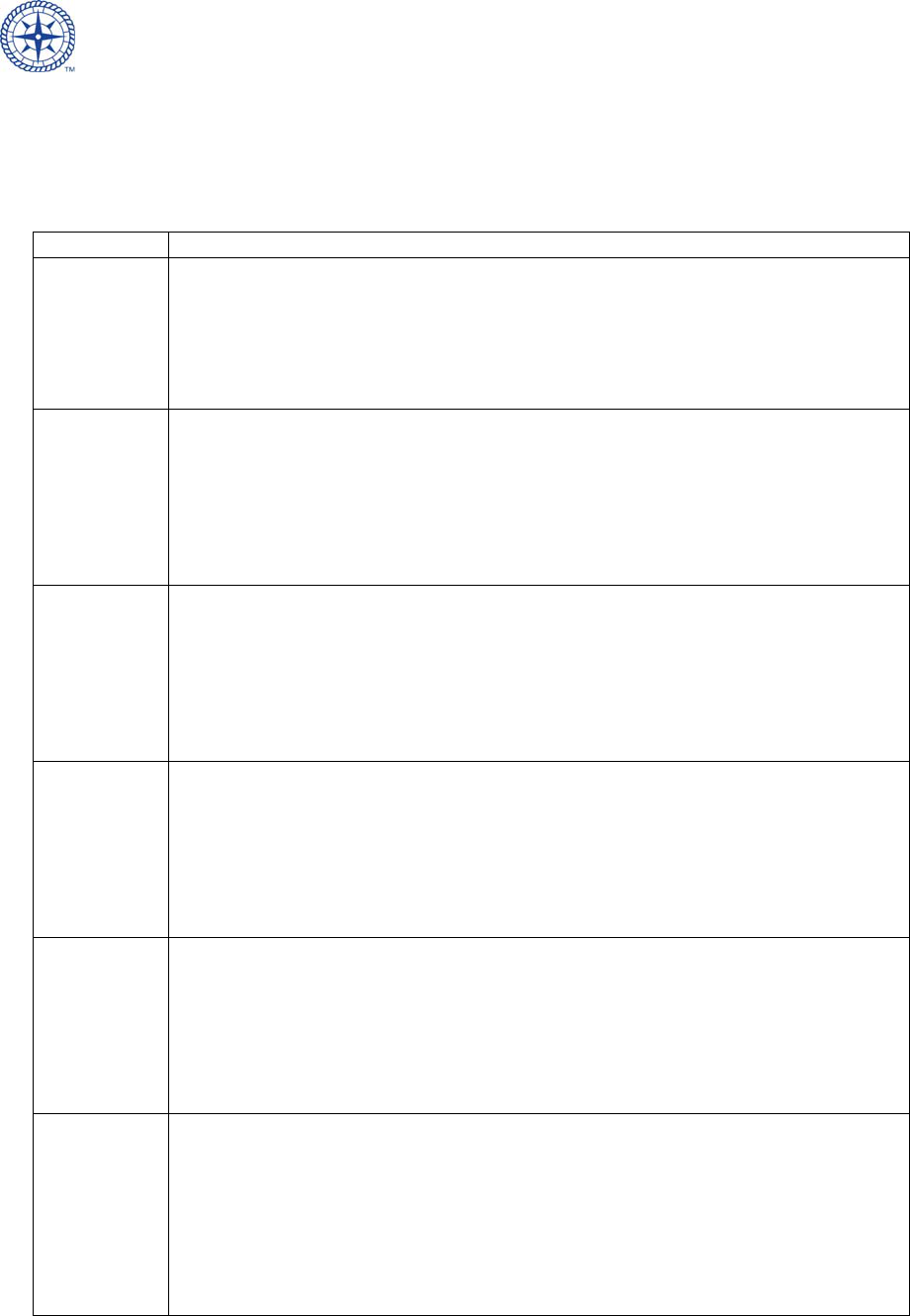
Washington Heights Expeditionary Learning School
Student Name: Class: Date: Family Member: Crew Advisor:
CONFERENCE CONCERNS/COMMENTS FOR SUBJECT TEACHERS
Please record any additional conference concerns or comments for subject teachers.
Subject Comments
Math
Please call: #___________ Please call to schedule a meeting: #______________
Science
Please call: #___________ Please call to schedule a meeting: #______________
Social Studies
Please call: #___________ Please call to schedule a meeting: #______________
ELA
Please call: #___________ Please call to schedule a meeting: #______________
Music
Please call: #___________ Please call to schedule a meeting: #______________
Other
Please call: #___________ Please call to schedule a meeting: #______________
16
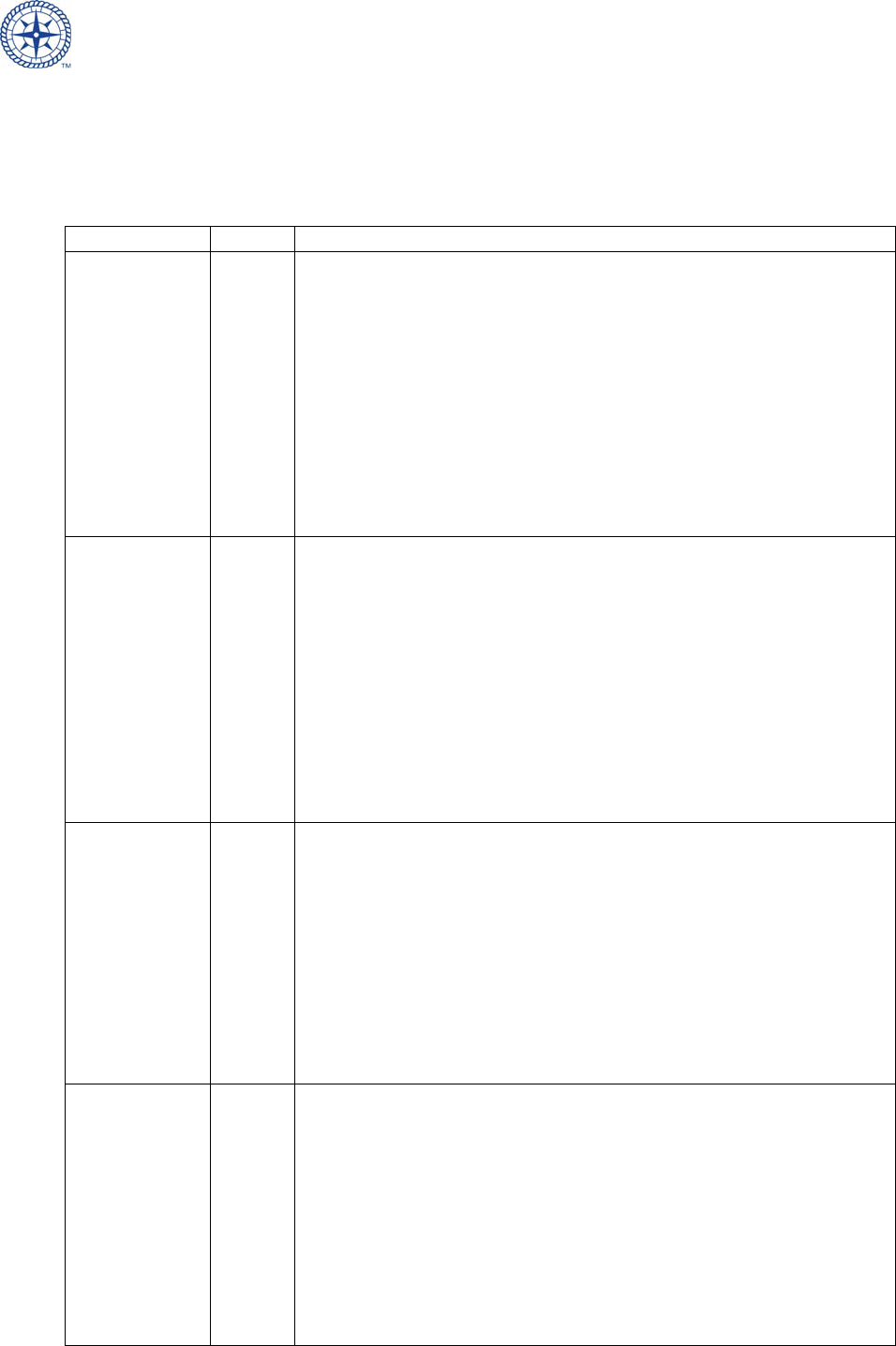
Washington Heights Expeditionary Learning School
Student Name: Class: Date: Parent Name: Crew Advisor:
Concerns For Students Earning Less Than a 75
Please record any concerns or comments for crew advisors to inform parents about at conferences.
This sheet should be filled out for any child earning below a 75 in class.
Subject
Math
Homework
Class work
Participation
Major Projects
Tests
Quizzes
HOWLS
4 3 2 1
4 3 2 1
4 3 2 1
4 3 2 1
4 3 2 1
4 3 2 1
4 3 2 1
Additional comments/concerns:
Suggested changes in study or work habits:
Science
Homework
Class work
Participation
Major Projects
Tests
Quizzes
HOWLS
4 3 2 1
4 3 2 1
4 3 2 1
4 3 2 1
4 3 2 1
4 3 2 1
4 3 2 1
Additional comments/concerns:
Suggested changes in study or work habits:
Social Studies
Homework
Class work
Participation
Major Projects
Tests
Quizzes
HOWLS
4 3 2 1
4 3 2 1
4 3 2 1
4 3 2 1
4 3 2 1
4 3 2 1
4 3 2 1
Additional comments/concerns:
Suggested changes in study or work habits:
ELA
Homework
Class work
Participation
Major Projects
Tests
Quizzes
HOWLS
4 3 2 1
4 3 2 1
4 3 2 1
4 3 2 1
4 3 2 1
4 3 2 1
4 3 2 1
Additional comments/concerns:
Suggested changes in study or work habits:
17

18
Music
Homework
Class work
Participation
Major Projects
Tests
Quizzes
HOWLS
4 3 2 1
4 3 2 1
4 3 2 1
4 3 2 1
4 3 2 1
4 3 2 1
4 3 2 1
Additional comments/concerns:
Suggested changes in study or work habits:
Other
Homework
Class work
Participation
Major Projects
Tests
Quizzes
HOWLS
4 3 2 1
4 3 2 1
4 3 2 1
4 3 2 1
4 3 2 1
4 3 2 1
4 3 2 1
Additional comments/concerns:
Suggested changes in study or work habits:

Washington Heights Expeditionary Learning School
WHEELS Student Preparation Checklist for Student-Led Conferences
F I have work from each of my academic classes in my crew folder.
F I have completed evaluations for each academic class.
F I understand how my work and mastery of learning targets have resulted in my final
grade in each academic subject.
F I know my strengths and weaknesses as a student.
F I know how I can improve for next quarter: I have set goals and created an action
plan for each class.
F I know how my behavior, attendance, and tardiness are affecting my academic
progress.
F I have practiced speaking about my work in my home language.
F I feel comfortable talking about my progress.
F I understand how my performance during student-led conferences will be assessed.
F I am familiar with the conference agenda.
F I have given any information about conferences to my parents.
F I have sent home an invitation to the conferences.
F My parents know when we are supposed to arrive and where the conference will be
held.
F My parents understand that if we are late they will not be able to have the full
conference time.
F My parents know that I will be doing most of the talking during the conference and
that my crew advisor will be with us.
F My parents know why they are meeting with the crew advisor and how they can
schedule a meeting with a subject teacher.
19

Washington Heights Expeditionary Learning School
Name: Class: Date:
Crew: Crew Advisor:
SLC Sample Student Agenda
1. Arrive on time.
2. Sit outside the classroom until I am invited in by the crew
advisor.
3. Reintroduce Crew Advisor and my family members.
4. Thank my family for coming.
5. Briefly explain the format and objectives of the student-led
conference, reminding my parents to save questions for the
end.
6. Show my family my report card, pointing out academic and
HOWL grades, as well as the teacher comments and
attendance and tardiness.
7. Mention which subject seems to be the best and in which I am
struggling the most.
8. Go through each subject, showing work samples, explaining
learning target mastery, and sharing my goals and action plan
for improvement.
9. Share with my parent how they can help me at home.
10. Ask my parents if they have any questions.
11. Give my parents and my crew advisor time to fill out
paperwork.
12. Thank my family and my crew advisor.
13. Help my family to refreshments.
14. Make sure my family fills out the conference survey.
15. Bring the survey back!
20

Washington Heights Expeditionary Learning School
Student ___________________ Crew _________
SAMPLE Student-Led Conferences Student Script
Introduce guest(s) to the crew leader.
Introduction
I want to thank you for taking time to come to my conference.
This is an opportunity for me to share who I am as a learner.
Here is my report card. (student reads through the report card)
I know that a strength of mine is ______________________________ and that I
need help with ______________________ in most of my classes.
One HOWL strength I have is _________________, because I
____________________________________________________________________
___________________________________________________________.
One HOWL need I have is _________________, because I
____________________________________________________________________
___________________________________________________________.
My portfolio contains work from my classes, including my most rewarding and most
challenging pieces that I wanted to share at my conference.
21
22
About my work…
1. I will start by telling you about my most rewarding piece of work is
____________________________. It is most rewarding, because
____________________________________________________________________
_____________________________________________________.
A learning target we focused on was
____________________________________________________________________
____________________________________________________________.
This sample of work shows I met this learning target, because I am able to
____________________________________________________________________
____________________________________________________________.
2. My most challenging piece of work is____________________________. It is
most challenging because
____________________________________________________________________
_____________________________________________________.
A learning target we focused on was
____________________________________________________________
____________________________________________________________.
This sample of work shows I met this learning target, because I am able to
____________________________________________________________
____________________________________________________________.
23
Goals
Academic:
What I will do to have more success in my most challenging class is
____________________________________________________________________
____________________________________________________________________
____________________________________________________________________
____________________________________________________________________
Character:
One thing I will do to improve my HOWLS is
____________________________________________________________________
____________________________________________________________________
____________________________________________________________________
____________________________________________________________________
Ask: Do you have any questions?
Conclusion
After looking at the progress report and getting feedback from the listeners,
conclude the presentation by saying:
Thank you for supporting me by coming to my Student-Led Conference.
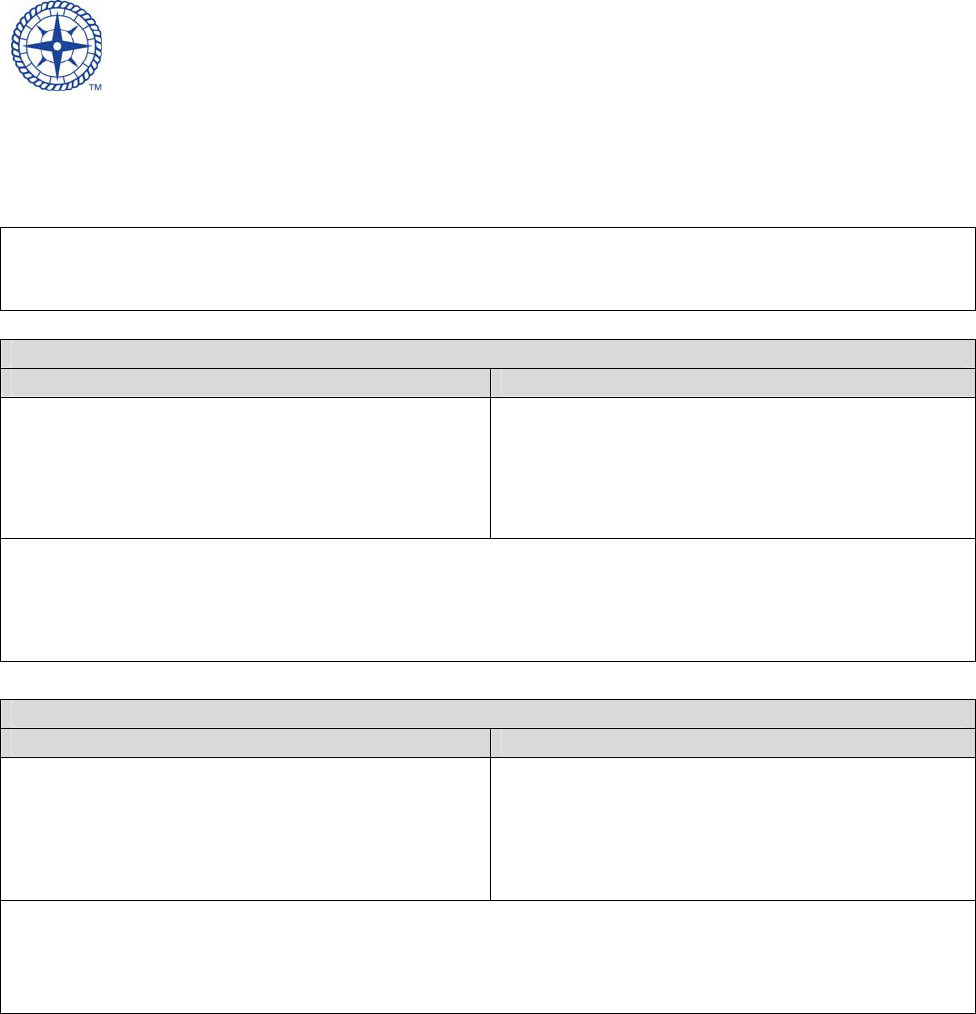
W
ashington Heights Expeditionary Learning
School
M
inds in Motion
WHEELS ACHIEVEMENT SUPPORT PLAN
STUDENTS NAME:
DATE:
ACADEMIC
STRENGTHS: NEEDS:
Suggestions for support:
HABITS OF WORK AND LEARINING
STRENGTHS: NEEDS:
Suggestions for support:
ACHIEVEMENT PLAN:
THE STUDENT COMMITS TO:
o STUDY SEMINAR/HOMEWORK HELP/TUTORING DAYS: T W R
THE FAMILY COMMITS TO:
THE SCHOOL COMMITS TO:
______________ _____________ _________________
STUDENT CREW LEADER FAMILY MEMBER
24
